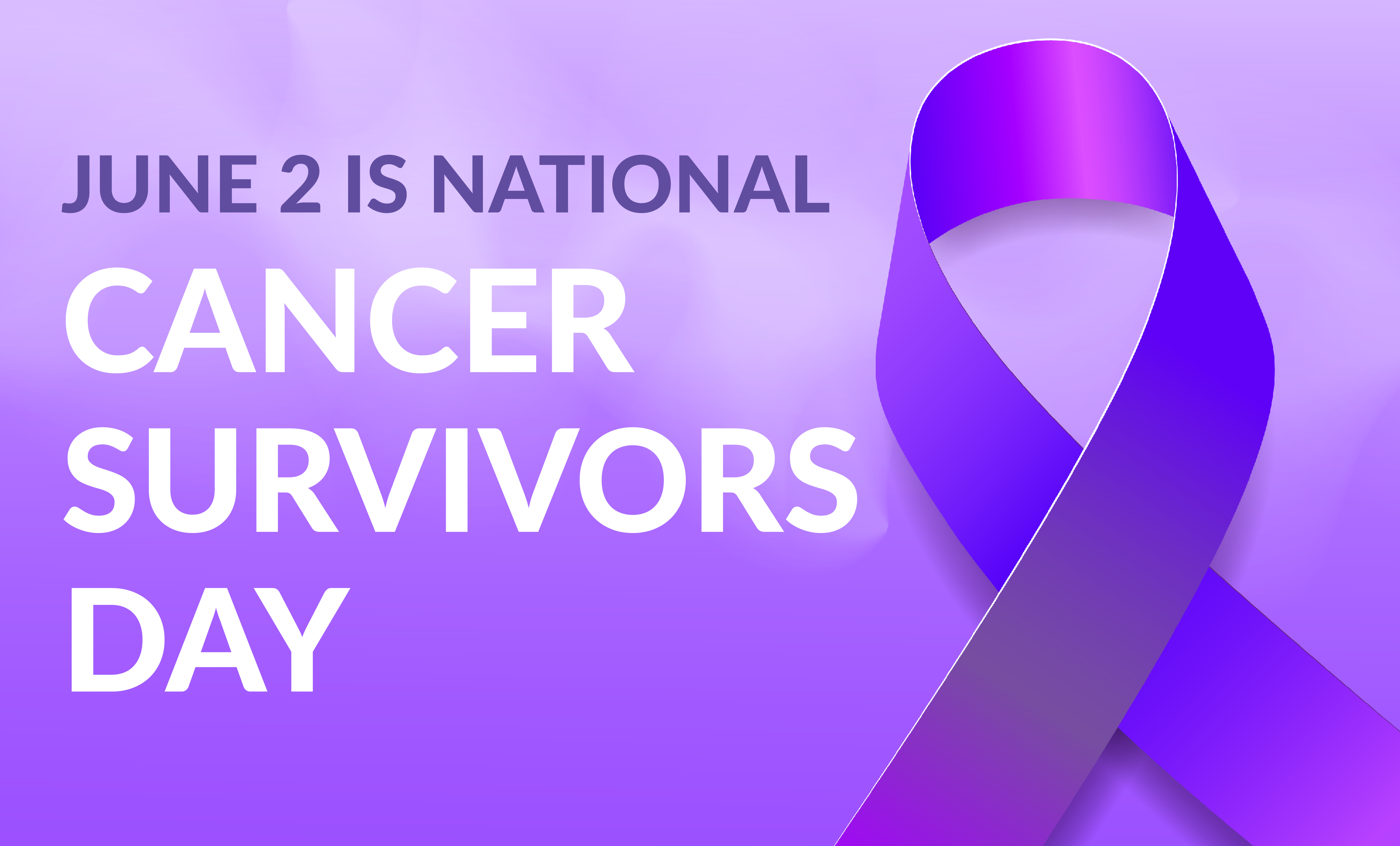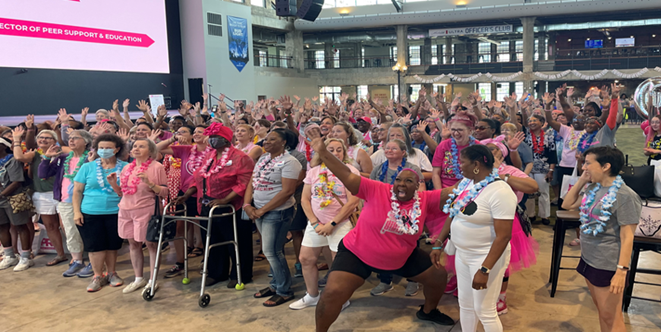Written By: Amy Shevlin, PT, MS, DPT, GCS
 June 2nd is National Cancer Survivors Day. What an amazing thing we get to celebrate on this day! With advances in treatment and early detection, this patient population continues to grow as survival has improved. Many times, the path to survival is difficult and can come with a high price, as the debilitating side effects of treatment often lead to deficits in function and self-care. Ideally, patients would be referred to PT and OT services to limit the extent of the functional decline but unfortunately, this isn’t the case. One study found that only 21% of adult patients with metastatic breast cancer who required PT or OT care due to a functional decline received any therapy treatment. Another study found that only 39% of patients who needed rehab services were referred to therapy.
June 2nd is National Cancer Survivors Day. What an amazing thing we get to celebrate on this day! With advances in treatment and early detection, this patient population continues to grow as survival has improved. Many times, the path to survival is difficult and can come with a high price, as the debilitating side effects of treatment often lead to deficits in function and self-care. Ideally, patients would be referred to PT and OT services to limit the extent of the functional decline but unfortunately, this isn’t the case. One study found that only 21% of adult patients with metastatic breast cancer who required PT or OT care due to a functional decline received any therapy treatment. Another study found that only 39% of patients who needed rehab services were referred to therapy.
Why aren’t cancer patients receiving the rehab services they need? A study published in 2024 asked this question and found that many times lack of support, side effects of treatment, transportation issues, and a general lack of referrals to rehab services were some of the most common barriers. Additionally, cancer patients have seemingly endless medical appointments often causing patients to put rehab services on the back burner as they prioritize their life-saving care.
Overall, cancer patients are reducing their activity levels during their treatment by an average of 2 hours per week with close to half of cancer patients staying less active after treatment than they were before treatment. We all know too well how this decline in activity can impact our patients, leading to further deficits in functional independence and self-care. Breast cancer patients can experience a 56 to 60% functional decline within 1 year of surgery.
We can understand why it happens, though, as most people don’t feel like being active when feeling lousy. However, studies with cancer patients have overwhelmingly shown that staying active throughout cancer treatment not only reduces the risk of reoccurrence, but helps patients tolerate their treatment better, reduces treatment side effects, and increases the probability of completing cancer treatment. When we look at it from that perspective, physical activity is life-saving care and should be prioritized.
 Who better to help lead cancer patients down the path of staying active during cancer treatment than us, as our clinical expertise in maximizing independence in functional mobility and self-care in a safe, evidence-based manner is key throughout cancer care. I am hopeful that PT and OT will continue to play a bigger role in cancer care so we can help reduce the functional decline and positively impact the quality of life of cancer patients. During my course Breast Cancer Rehab, we discuss evidence-based strategies designed to maximize functional outcomes and address common deficits that occur because of breast cancer treatment.
Who better to help lead cancer patients down the path of staying active during cancer treatment than us, as our clinical expertise in maximizing independence in functional mobility and self-care in a safe, evidence-based manner is key throughout cancer care. I am hopeful that PT and OT will continue to play a bigger role in cancer care so we can help reduce the functional decline and positively impact the quality of life of cancer patients. During my course Breast Cancer Rehab, we discuss evidence-based strategies designed to maximize functional outcomes and address common deficits that occur because of breast cancer treatment.
I am a breast cancer survivor myself, so I know first-hand how difficult the road to survival can be and I feel fortunate I was able to stay active throughout my treatment. I’ve included a picture that was taken during an event for breast, uterine, and ovarian cancer survivors with all the women in this picture being cancer survivors. This is one of my favorite pictures, as I love to zoom in and see the joy on the faces of these survivors. I’m excited about the opportunity for Physical and Occupational Therapy clinicians to positively impact the lives of these patients during and after their cancer treatment.
Join me in August for my Live Stream, Breast Cancer Rehab, with Summit. Learn about the different types of breast cancer as well as medical and surgical treatment options. We will discuss the evidence-based evaluation strategies designed to create a holistic assessment of patient deficits and a thorough therapy plan of care.
Explore continuing education courses from Amy below:
Visit summit-education.com for more information.
References:
Mustian K, Sprod L et al. Exercise Recommendations for Cancer-Related Fatigue, Cognitive Impairment, Sleep problems, Depression, Pain, Anxiety, and Physical Dysfunction: A Review. Oncol Hematol Rev 2012; 8(2): 81-88
Ruiz-Casado A, Álvarez-Bustos, et al. Cancer-related Fatigue in Breast Cancer Survivors: A Review, Clinical Breast Cancer, 2021; 21(1): 10-25
Matias M, Baciarello G et al. Fatigue and Physical Activity in cancer survivors: a cross sectional population based study. Cancer Med 2019 8(5): 2535-2544
Erlik M, Timm H, Larsen ATS, Quist M. Reasons for non-participation in cancer rehabilitation: a scoping literature review. Support Care Cancer. 2024 May 14;32(6):346. doi: 10.1007/s00520-024-08553-9. PMID: 38743121; PMCID: PMC11093823.
About Summit Professional Education
Summit equips therapists with better continuing education courses that provide CEUs while impacting patient outcomes. Find high-quality on-demand CE along with the largest offering of live options — including live webinars, live streams, and in-person courses. Want to deep dive on a topic? Summit offers hundreds of 6-hour courses for the most in-depth learning!
